Podcast: The Academic Minute
-
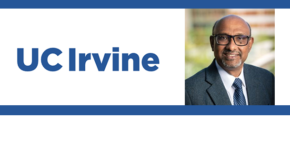
Saurabh Chatterjee, University of California, Irvine – Extreme heat is damaging our vital organs
Extreme heat stress can have many negative effects on our bodies. Saurabh Chatterjee, professor of environmental & occupational health at the at the Joe C. Wen School of Population & Public Health at the University of California, Irvine, determines how to protect ourselves. Dr. Saurabh Chatterjee is a human physiologist with specialized training in immunology. He…
-
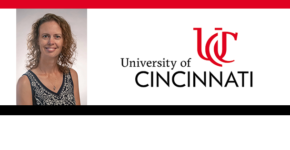
Sarah Stitzlein, University of Cincinatti – How Do We Encourage Honesty in our Political World Today
Truth and honesty in politics can seem fleeting or nonexistent. Sarah Stitzlein, professor of education and philosophy at the University of Cincinnati, gets us working to change this. Sarah M. Stitzlein is Professor of Education and Philosophy at the University of Cincinnati. She is editor of the journal Democracy & Education, President of the Ohio Valley…
-
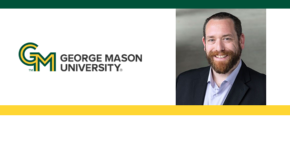
Brad Greenwood, George Mason University – Efficacy of Breach Notifications Laws
Data breaches are putting our data at risk, so what is being done? Brad Greenwood, professor of information systems and operations management and the Maximus Corporate Partner Professor of Business at George Mason University, explores if current laws are keeping us safe. Brad N. Greenwood is a professor of information systems and operations management and…
-
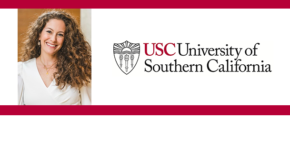
Amie Rapaport, University of Southern California – School Absences, Grades, and Mental Health
Schools have been prioritizing students’ mental health, but it hasn’t been enough. Amie Rapaport, research scientist at the Center for Social and Economic Research at the University of Southern California, looks at what still needs to be done. Amie Rapaport has a PhD in Social Psychology and is a Research Scientist at the University of…
-

Ian Afflerbach, University of North Georgia – The “Scab” as a Metaphor in American Labor Politics
Some insults end up forgotten to history, and some remain. What makes the difference? Ian Afflerbach, associate professor of American literature at the University of North Georgia, looks into this with current events on the mind. Ian Afflerbach is an Associate Professor at the University of North Georgia. He teaches courses on Modern American Fiction,…
-
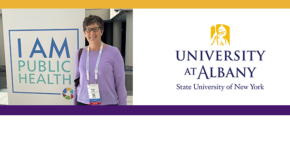
Ursula Lauper, University at Albany – Rise in Legionnaires’ Disease
On University at Albany Week: Why is legionnaire’s disease on the rise? Ursula Lauper, clinical assistant professor in the School of Public Health, explores the data to provide an answer. Ursula Lauper is Chief of the Water Systems Control and Analysis section within the NYS Department of Health Bureau of Water Supply Protection. In this…
-

Abdullah Canbaz, University at Albany – A.I. Powered Emergency Response and Recovery
On University at Albany Week: Can artificial intelligence help us during a crisis? Abdullah Canbaz, assistant professor in the college of emergency preparedness, homeland security and cybersecurity, delves in to find out. Abdullah Canbaz is an assistant professor in the College of Emergency Preparedness, Homeland Security and Cybersecurity at the University at Albany. His research…
-
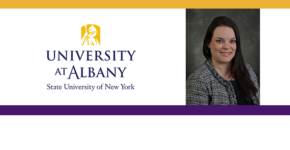
Sarah Domoff, University at Albany – Problematic Media Use and Children
On University at Albany Week: What happens when kids watch too much media at a young age? Sarah Domoff, assistant professor in the department of psychology in the College of Arts and Sciences, looks into this. Assistant Professor Sarah Domoff is a leading expert on problematic media use during childhood. Her research and clinical work…
-
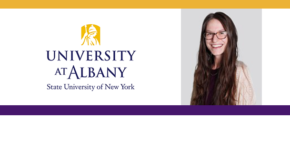
Zoe Fowler, University at Albany – The Science of Co-Imagination and Relationships
On this Student Spotlight during University at Albany Week: Imagining a future together can have big benefits for a relationship. Zoe Fowler, PhD candidate in the Gaesser Lab, explains what brings about this connection. Zoë Fowler is a cognitive scientist and scholar of imagination. She is a PhD candidate in the Department of Psychology at…
-
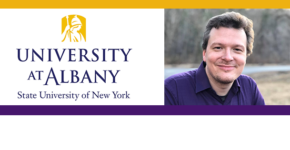
Matthew Szydagis, University at Albany – Lithium and Clean Energy
On University at Albany Week: Generating safe and clean electricity can lead to a brighter future. Matthews Syzdagis, associate professor in the department of physics, determines how to do so. University at Albany Associate Professor of Physics Matthew Szydagis received his B.A., M.S., and Ph.D. from the University of Chicago in 2005, 2006, and 2011, respectively, then…
